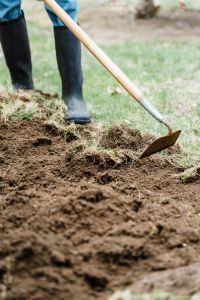Living off the land is a lifestyle that appeals to many, whether it’s for environmental reasons, economic benefits, or a desire for self-sufficiency. However, transitioning to a life where you rely primarily on your own resources requires significant knowledge and preparation. Here’s a guide to the top 10 things you need to know to successfully live off the land.
1. Understanding Local Ecosystems
Know Your Environment: Before embarking on a self-sufficient lifestyle, it’s crucial to understand the local ecosystem. Research the climate, soil types, and native plants and animals. Knowing what grows well in your area and what wildlife you might encounter will help you make informed decisions about what to plant and how to manage your land.
Learn Seasonal Patterns: Familiarize yourself with the seasonal patterns in your region. This includes understanding frost dates, growing seasons, and local weather conditions that can impact your gardening and foraging efforts.
2. Growing Your Own Food
Start a Vegetable Garden: Growing your own vegetables is a cornerstone of living off the land. Learn about soil preparation, planting techniques, and crop rotation to maintain soil health and maximize your yield.
Preserve Your Harvest: To ensure a steady food supply year-round, learn methods of food preservation such as canning, drying, and fermenting. This will help you store excess produce and reduce waste.
Diversify Your Crops: Plant a variety of vegetables, fruits, and herbs to ensure a balanced diet and mitigate the risk of crop failure. Companion planting can also help enhance plant growth and reduce pest problems.
3. Raising Livestock
Choose Appropriate Livestock: If you plan to raise animals, select breeds that are well-suited to your climate and living conditions. Chickens, goats, and pigs are common choices for small-scale homesteaders.
Animal Care Basics: Learn about the care and feeding of your livestock, including shelter, health care, and breeding. Regular vaccinations, parasite control, and proper nutrition are essential for maintaining healthy animals.
Processing and Preservation: If you plan to use livestock for meat, understand the processes of humane slaughter, butchering, and preservation. Proper techniques are crucial for food safety and quality.
4. Building and Maintaining Shelter
Sustainable Building Practices: Construct or retrofit your home using sustainable and energy-efficient methods. Consider options like straw bale construction, cob, or earthships that use local and natural materials.
Maintenance Skills: Regular maintenance of your home and outbuildings is key. Learn basic carpentry, plumbing, and electrical skills to handle repairs and upgrades on your own.
Insulation and Heating: Ensure your home is well-insulated to reduce heating needs. Wood stoves, solar heating, and passive solar design can help you manage energy consumption.
5. Water Management
Secure a Reliable Water Source: Identify and secure a reliable source of water, such as a well, rainwater harvesting system, or nearby stream.
Water Purification: Learn methods for purifying water to ensure it’s safe for drinking and cooking. Boiling, filtration, and chemical treatments are common options.
Water Conservation: Implement water conservation practices such as using greywater systems, mulching gardens, and optimizing irrigation to make the most of your water resources.
6. Skills for Foraging and Hunting
Foraging Knowledge: Educate yourself about edible wild plants, mushrooms, and fruits in your area. Foraging can supplement your diet with wild foods that are often nutrient-dense.
Hunting and Trapping: If you plan to hunt for food, learn about local regulations, hunting techniques, and ethical practices. Trapping can also be a useful skill for sourcing protein.
Safety and Identification: Always ensure accurate identification of foraged items and practice safe hunting methods to avoid accidents and health risks.
7. Energy Solutions
Renewable Energy Options: Explore renewable energy sources such as solar, wind, or hydro power to reduce reliance on fossil fuels. Assess your energy needs and choose the most suitable options for your location.
Energy Efficiency: Implement energy-saving practices in your home, such as using energy-efficient appliances, LED lighting, and passive solar design to minimize energy consumption.
Backup Systems: Have backup energy solutions in place, such as generators or battery storage, to ensure you have power during outages or periods of low renewable energy production.
8. Health and First Aid
Basic Medical Skills: Learn basic first aid and emergency medical skills. Knowing how to treat common injuries, administer first aid, and manage minor illnesses is crucial when living off the land.
Natural Remedies: Familiarize yourself with natural remedies and herbal medicine for treating minor ailments. Growing your own medicinal herbs can also be beneficial.
Health Monitoring: Regularly monitor your health and the health of your family. Access to healthcare may be limited in remote areas, so proactive health management is essential.
9. Financial Management
Budgeting for Self-Sufficiency: Living off the land can require a significant initial investment. Budget for land, tools, seeds, livestock, and other essentials.
Income Sources: Consider supplementary income sources such as selling surplus produce, crafts, or homemade goods to sustain your lifestyle and cover expenses.
Bartering and Trading: Develop skills for bartering and trading with neighbors or local communities to obtain goods or services you may not produce yourself.
10. Community and Support
Build a Network: Connect with other homesteaders, local farmers, or off-grid communities. Sharing knowledge, resources, and support can be invaluable.
Learning Resources: Utilize books, online forums, and local workshops to continually learn and improve your skills. Knowledge from experienced individuals can help you avoid common pitfalls.
Legal and Regulatory Awareness: Be aware of local regulations regarding land use, zoning, and building codes. Ensure your activities comply with legal requirements to avoid potential issues.


